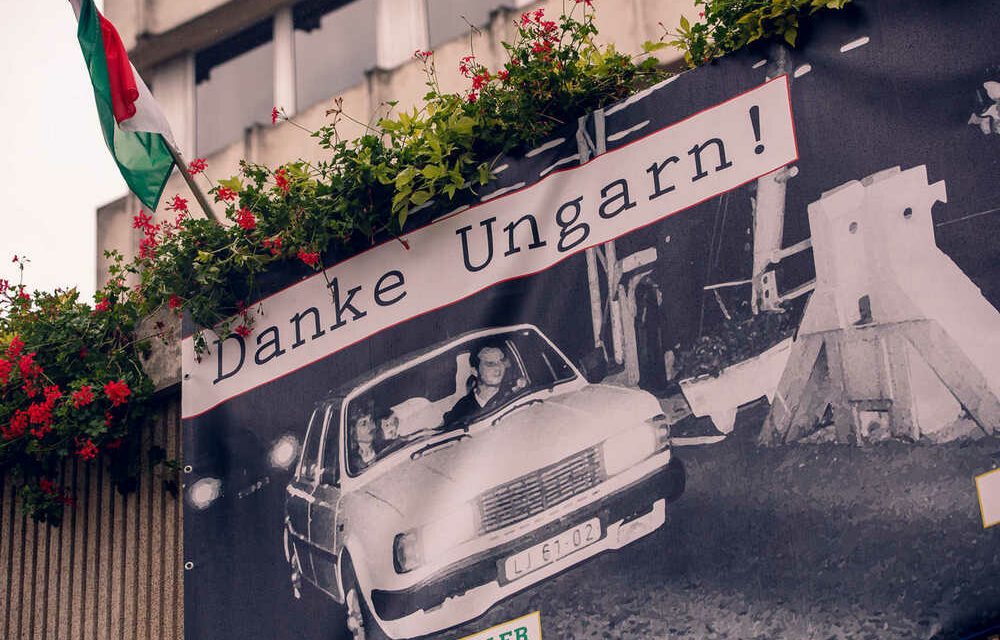Let's not forget that in 1989, Hungary opened its western borders to East Germans yearning for freedom, and accepted any possible Soviet retaliation, as the country was not yet independent at that time, and Soviet troops were stationed on its territory.
On June 28, 1914, Serbian terrorist Gavrilo Princip killed the heir to the throne of the Monarchy, Ferenc Ferdinand, with a pistol shot in Sarajevo. The people and politicians of Europe are both relieved: war is finally over! István Tisza, Prime Minister of Hungary, did not share this uplifting feeling. He immediately took the first train to Vienna to meet Emperor Franz Joseph. At all costs, he wanted to prevent demands being made against Serbia that would lead to a declaration of war.
The Austro-Hungarian Monarchy was a dualist state, a real union of two independent states, but joint decisions were made in joint policies, such as military affairs and foreign affairs. Where the king-emperor also resided, i.e. in Vienna. Tisza had to experience bitterly that Berlin has more influence in Vienna than Budapest. The Germans wanted war and war could not be prevented.
"By the time the leaves fall, our soldiers will return home." They did not convert. The Hungarian troops fought for four years, and always in the front line. So much so that no other nation in the multi-ethnic Monarchy suffered such heavy losses as the Hungarians. And no other nation was punished so much after the war. In the south, exactly as the terrorist Gavrilo Princip had imagined, a South Slavic state was created, which was later named Yugoslavia. The Hungarian Southern Region was added to this.
In the north, Czechoslovakia was created from the former Kingdom of Bohemia and the Hungarian Highlands. In the east, the territory of Romania expanded: not only Transylvania, but also Parthium and Banat. The Romanians received more territory from the thousand-year-old Kingdom of Hungary than was left to the Hungarians in total. The newly founded Republic of Austria distanced itself from the monarchy, claimed and received a part of Western Hungary, the Őrvidék. This ended the half-millennium rule of the Habsburgs in Central Europe.
The irony of fate is that no other nation protested as often and as vehemently against Habsburg rule as the Hungarians. In the end, however, only the Hungarians could bear all the odium of the multi-ethnic empire called the prison of the peoples. The justice-distributing Western victors not only dismembered the Austro-Hungarian Monarchy, which was overwhelming for them, but also condemned a thousand-year-old European nation to death with the stroke of a pen.
Knowing this, one might think that twenty years later, when the second World War broke out, no one was as happy as the Hungarians. But not. They wanted justice, not war. When the Wehrmacht wanted to use Hungarian territory and infrastructure to invade Poland in 1939, Hungary refused. Instead, it opened its borders to Polish refugees.
It also accommodated the remnants of the Polish army, who later joined the Allies from here. This posed quite a risk for the country, but decency and thousand-year-old friendship dictated it. There was great outrage in Nazi Germany. The legend of the "raisin-picking Hungary" was born: the Hungarians say yes to the border changes favorable to them (the first and second Vienna decisions), but no to war involvement and the Nuremberg Laws. This is still used against us today, when our independence and our own representation of interests interfere with German plans.
A year later, the Wehrmacht no longer asked, but only asked whether the Hungarian army wanted to fight with the Germans or against the Germans in the war against Yugoslavia. What a question! Fight? What at all? After all, the peace treaties of the First World War limited the military potential of the losers. Hungary complied with the regulations like a gentleman, but Hitler was not at all bothered by the verdict in his imperial plans.
In addition, to run over Yugoslavia with the Germans, with whom we concluded a treaty of eternal friendship for the sake of the half a million Hungarians living there under duress? However, Hitler's question was theoretical, rejection was out of the question. However, Pál Teleki, the Hungarian Prime Minister, found a way not to agree to the war. In his farewell letter, he called the German allies villains, the alliance between Nazi Germany and Hungary a shame, and then shot himself in the head with his pistol.
A few months later, all of Europe united to fight the deadly threat of Bolshevism. At least this is how the German press presented the attack on the Soviet Union, the Barbarossa plan. This view was not completely unfounded: in addition to Germany, Finland, Slovakia, Italy, Spain and Romania also took part in the military operations. Other countries, such as Belgium, France, Norway or the Czechs, may not have helped in a completely sovereign way, but with weapons.
Hungary? He refused to enter the war. This outraged not only the European and German press, but also many Hungarians. So much so that when some stray Soviet (?) planes bombed Kassa a few weeks later, Henrik Werth, the German-born head of the Hungarian army, said: "It is possible that the Kingdom of Hungary is not at war with the Soviet Union, but the army of the Kingdom of Hungary is very much at war stands." A few months later, Miklós Horthy retired Henrik Werth and appointed the well-known anti-Nazi Ferenc Szombathelyi as chief of staff. But it was all too late, by then the Hungarian National Guard was already fighting on the Soviet front.
Four years later, this Hitler-style European alliance fell apart in a neat order: Italy was liquidated, Finland concluded a separate peace, Romania jumped out, and the pro-Nazi Tiso was put to death in Slovakia. Only the Hungarians fought: the last units surrendered to the Americans in Bavaria. The myth of Hitler's last ally was born. Hungary, the guilty nation.
Fortunately, the Cold War did not turn into an actual war. Instead, we had 1956 and goulash communism in this barracks declared the most cheerful by the West. Our current allies paid the price again with us, in the 1980s the Soviet Union used Hungary to obtain valuable foreign currency.
The result of this was that at the time of the regime change, no country was as heavily indebted as Hungary. Not only in the Eastern Bloc, but all over the world. Hungary became de facto insolvent, and thus the gradual transition to a market economy was impossible. It took almost a quarter of a century until 2015 to reach the standard of living of the 1980s, but high indebtedness still weighs on the country as a burden.
In the meantime, let's not forget that in 1989, Hungary opened its western borders to East Germans yearning for freedom, and accepted possible Soviet retorts, as the country was not yet independent at the time, and Soviet troops were stationed on its territory. The risk was high, anything could have happened. The unification of the divided Germany started with our help, and we didn't expect any thanks for it: as always, it was natural to help.
We did not submit any territorial claims when the joint successor states were disbanded. We thought that the European Community would bring medicine to our painful wounds. Today, Hungary is the scapegoat for everything, even though it is only asking for justice and the abolition of double standards in Brussels in the name of national sovereignty.
On February 21, 2022, Russia invaded Ukraine. The Ukrainians are putting up a brave resistance and the countries of Europe are cheering them on. They are in a hurry to show how much they want to support this country, about whose past they have very little knowledge. They hope that the Russian aggressor, President Putin, will fall into the war. They discriminate against the Russians and support the Ukrainians with arms shipments.
Every country, with one exception. Hungary refuses to deliver weapons, and does not even allow the passage of weapons shipments. As in 1939, it again welcomes refugees en masse, takes care of them, and at the same time protects the Hungarian communities across the border. Hungary is on the side of peace, as always, it does not want to interfere in the war, it wants a compromise and a just peace.
The European media world is outraged, in the name of European solidarity and mandatory commitment to community, they manipulate and harass their readers against the Hungarians who are once again "peeping raisins".
Desperately I plead: dear God, please, please, not again.
Authors: environmental researcher Balázs Horváth, historian Irén Rab
Source: Magyar Hírlap
Photo: nyugat.hu












